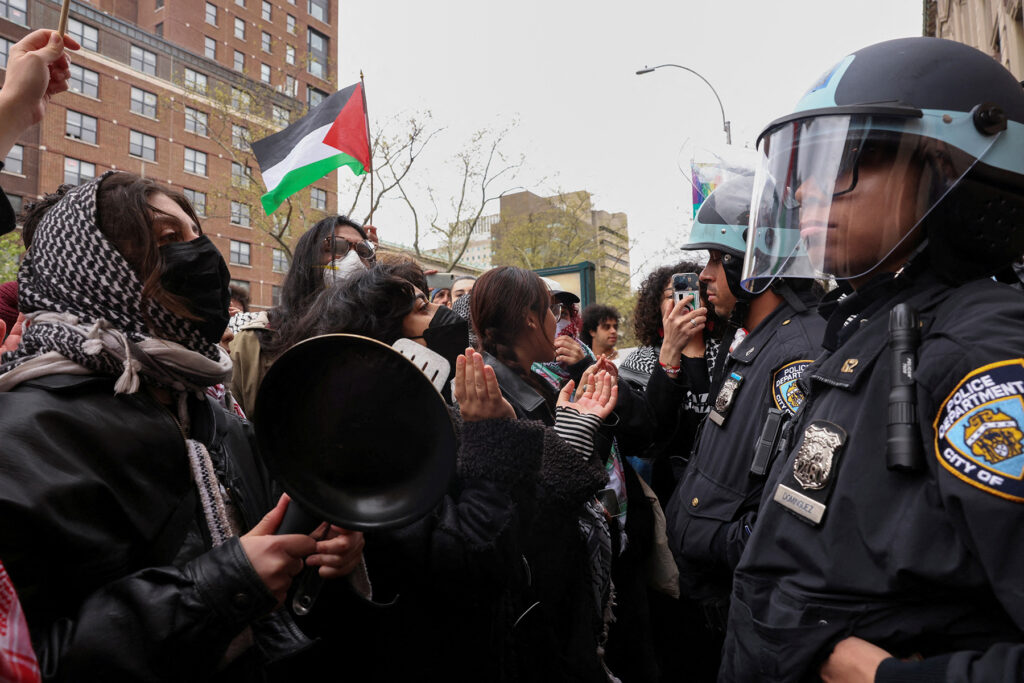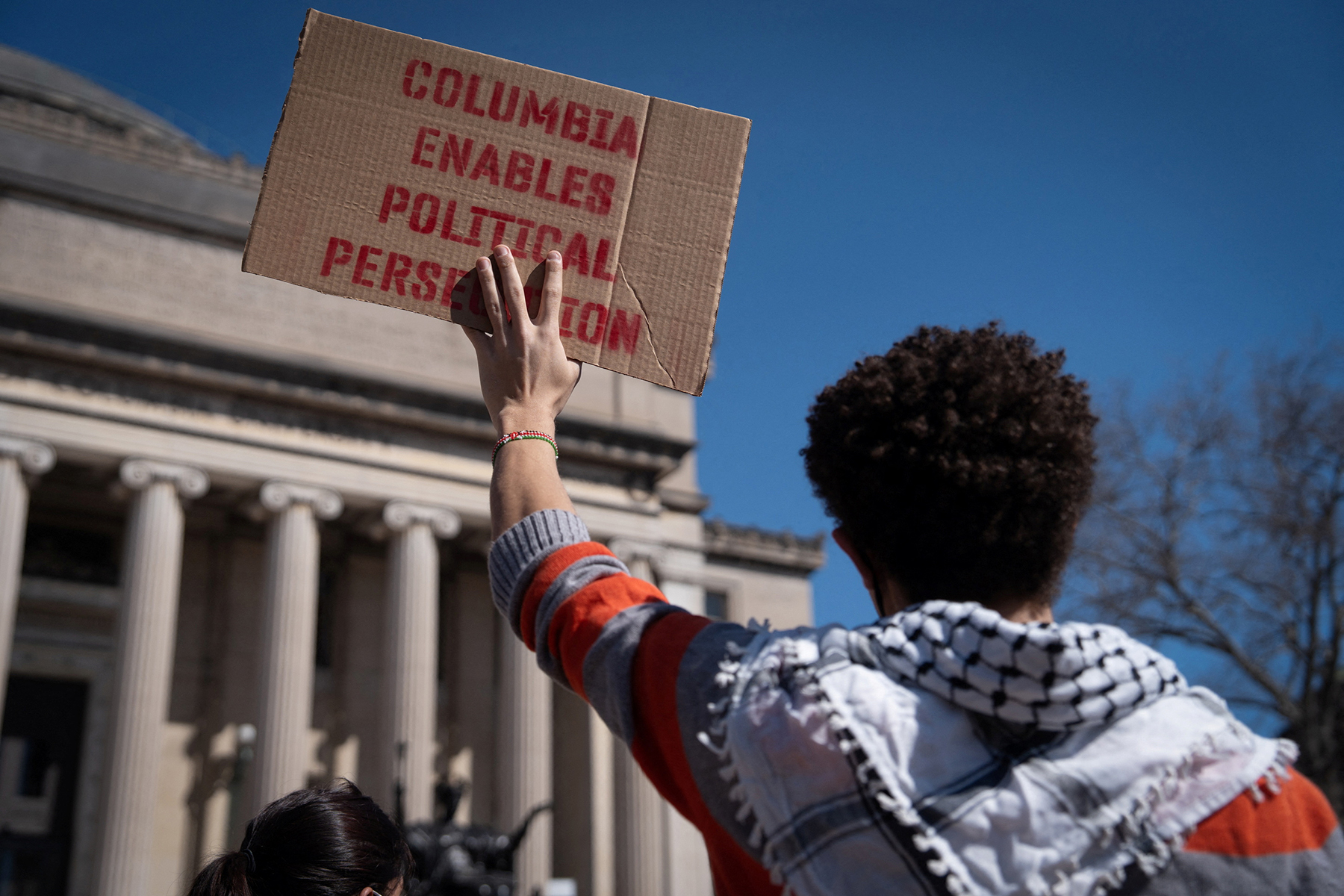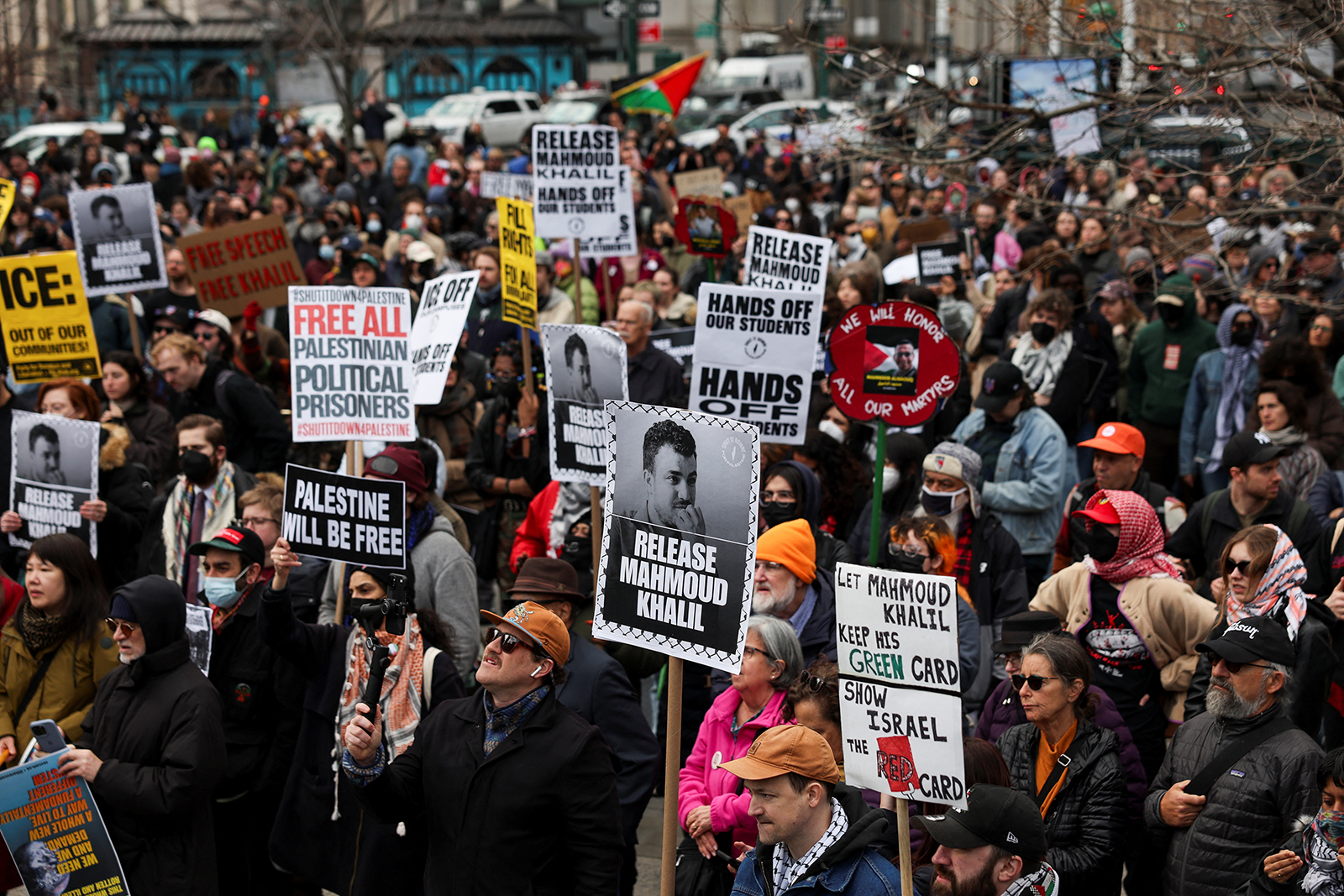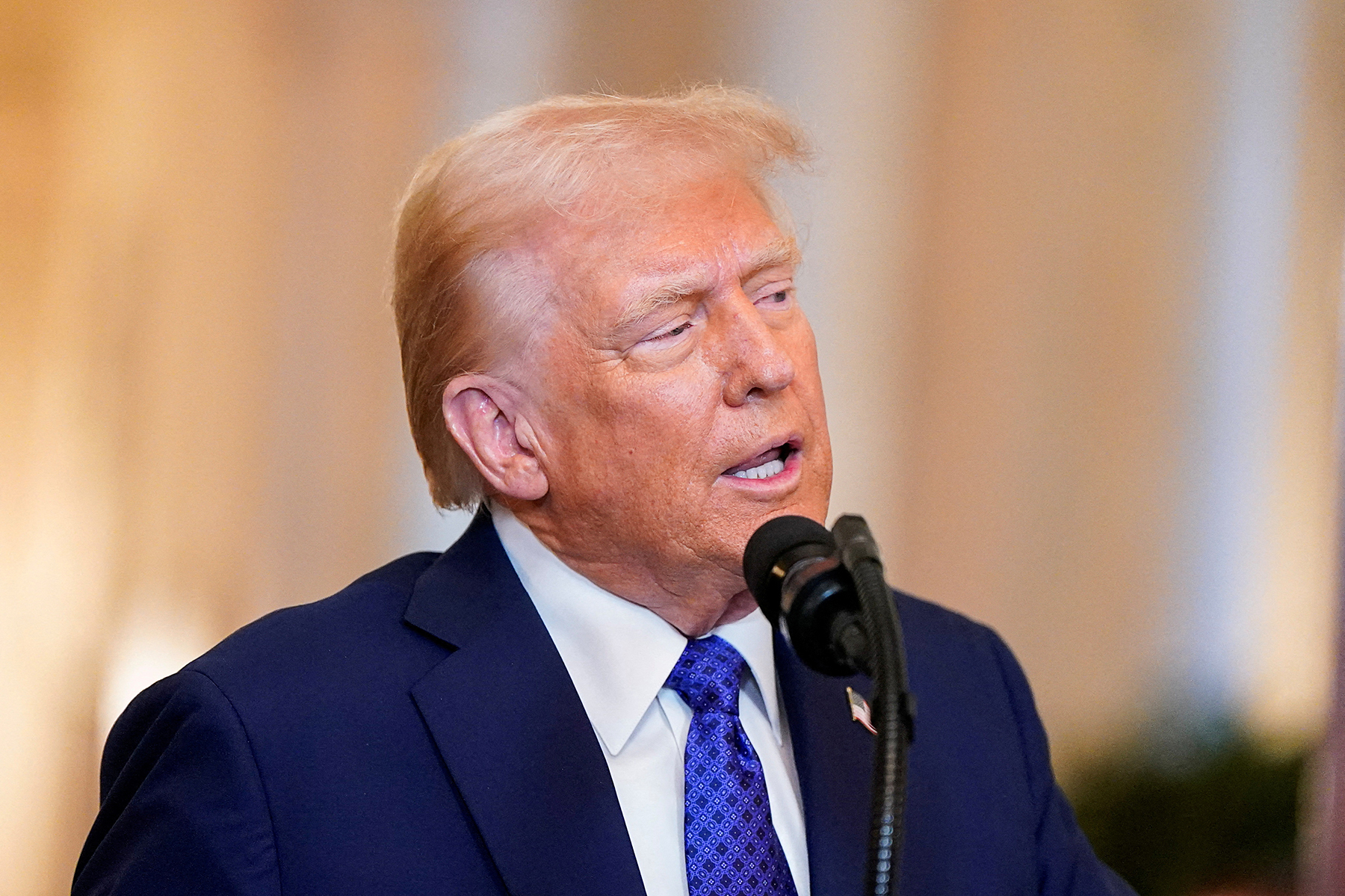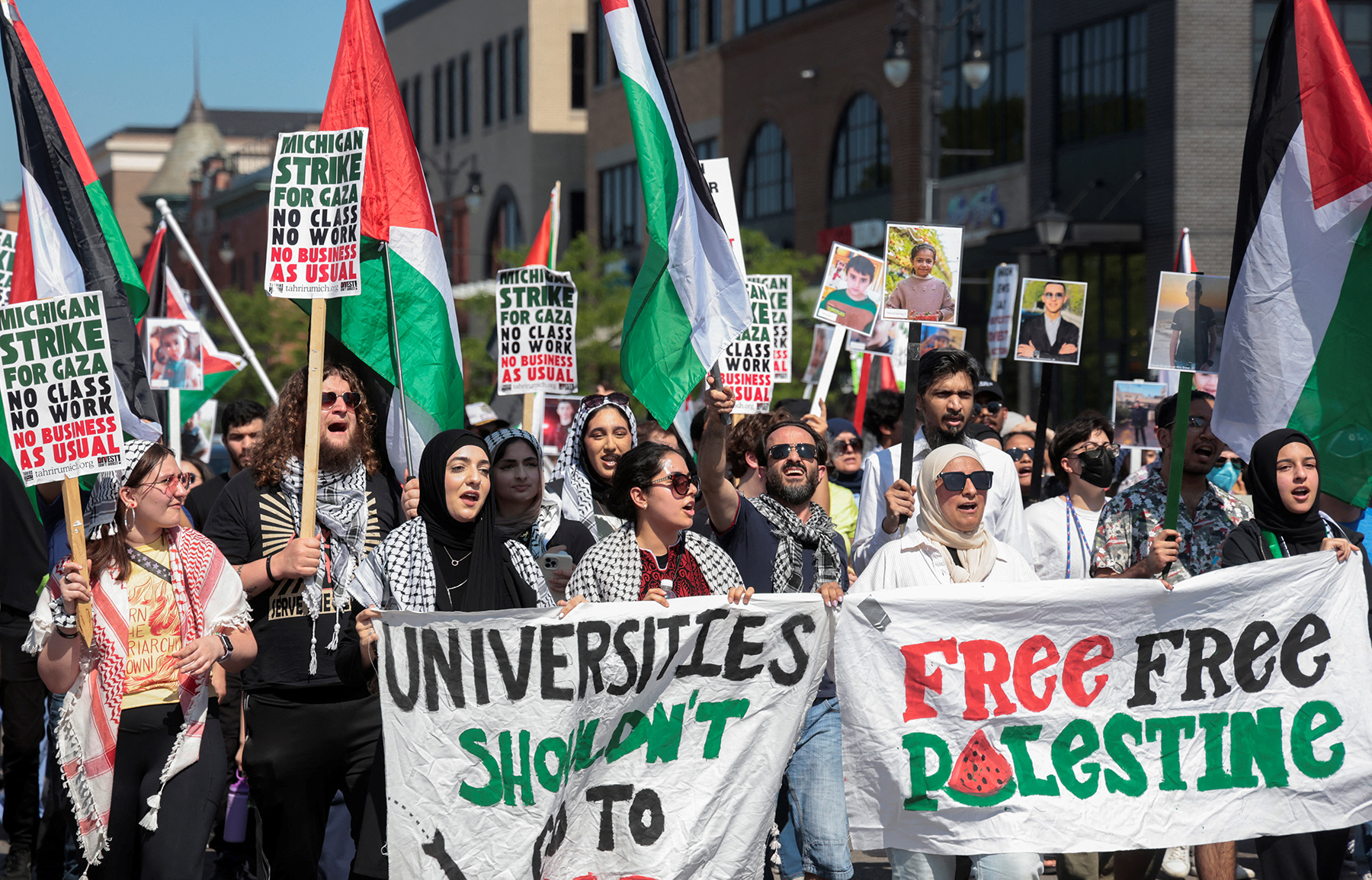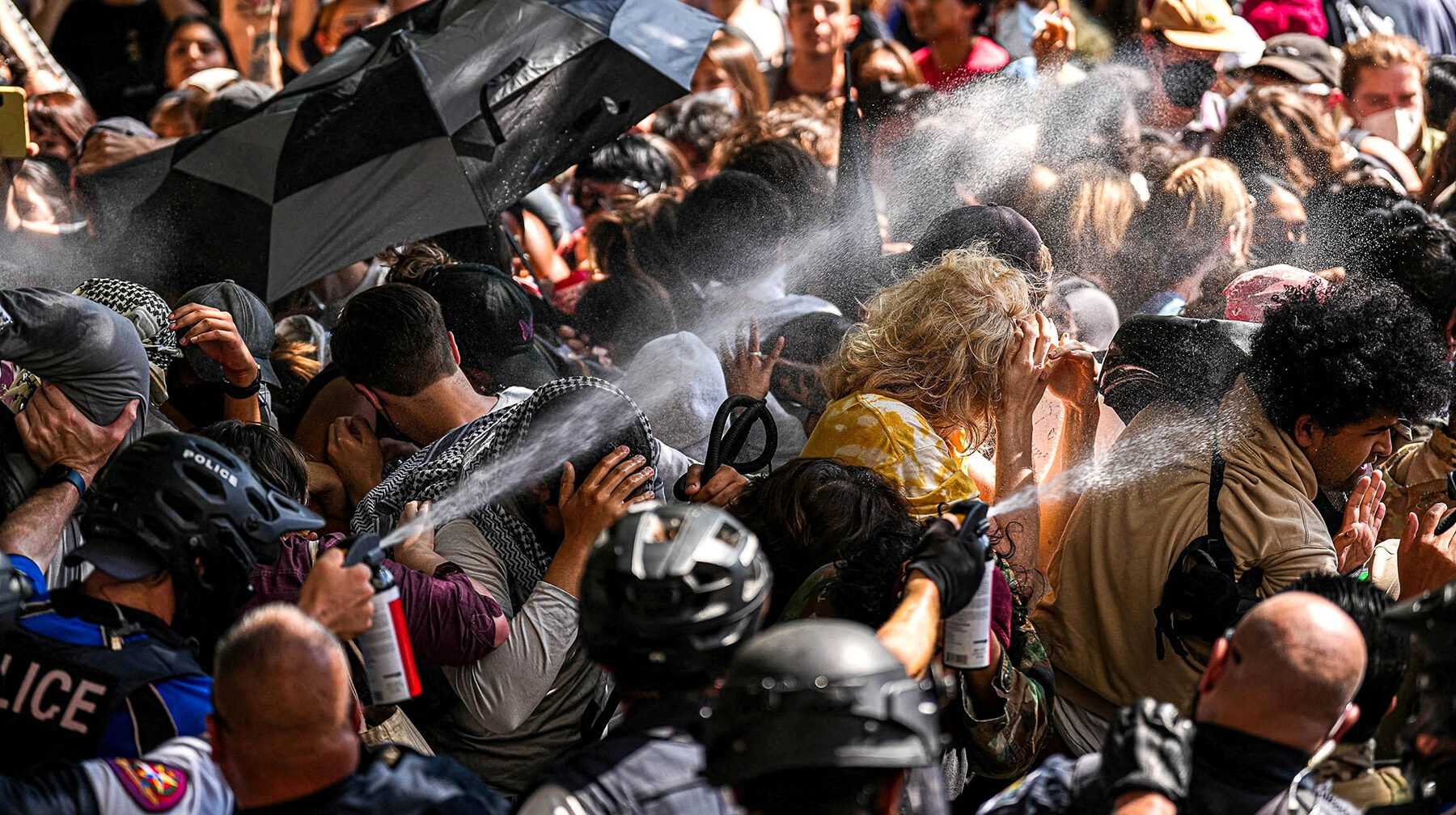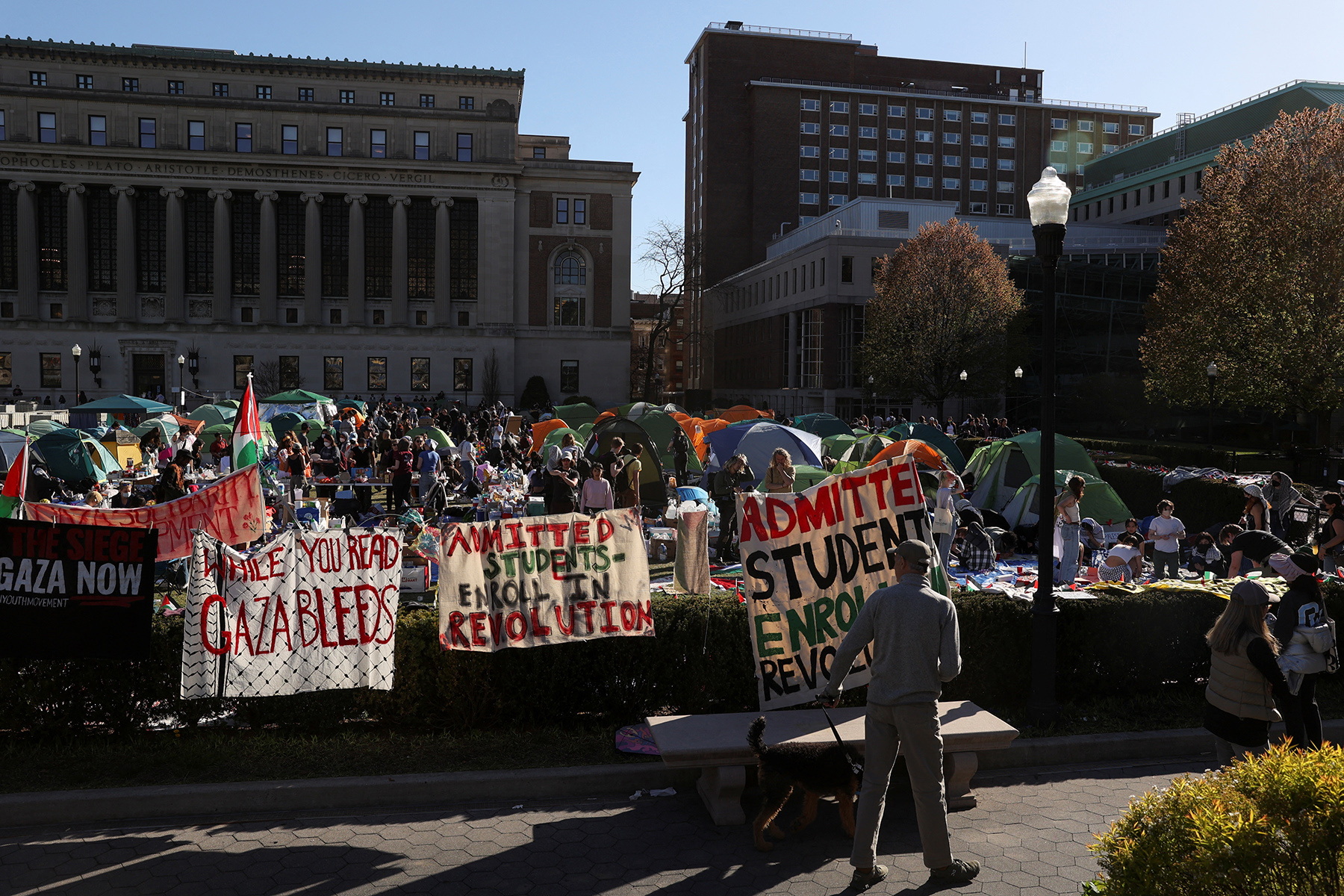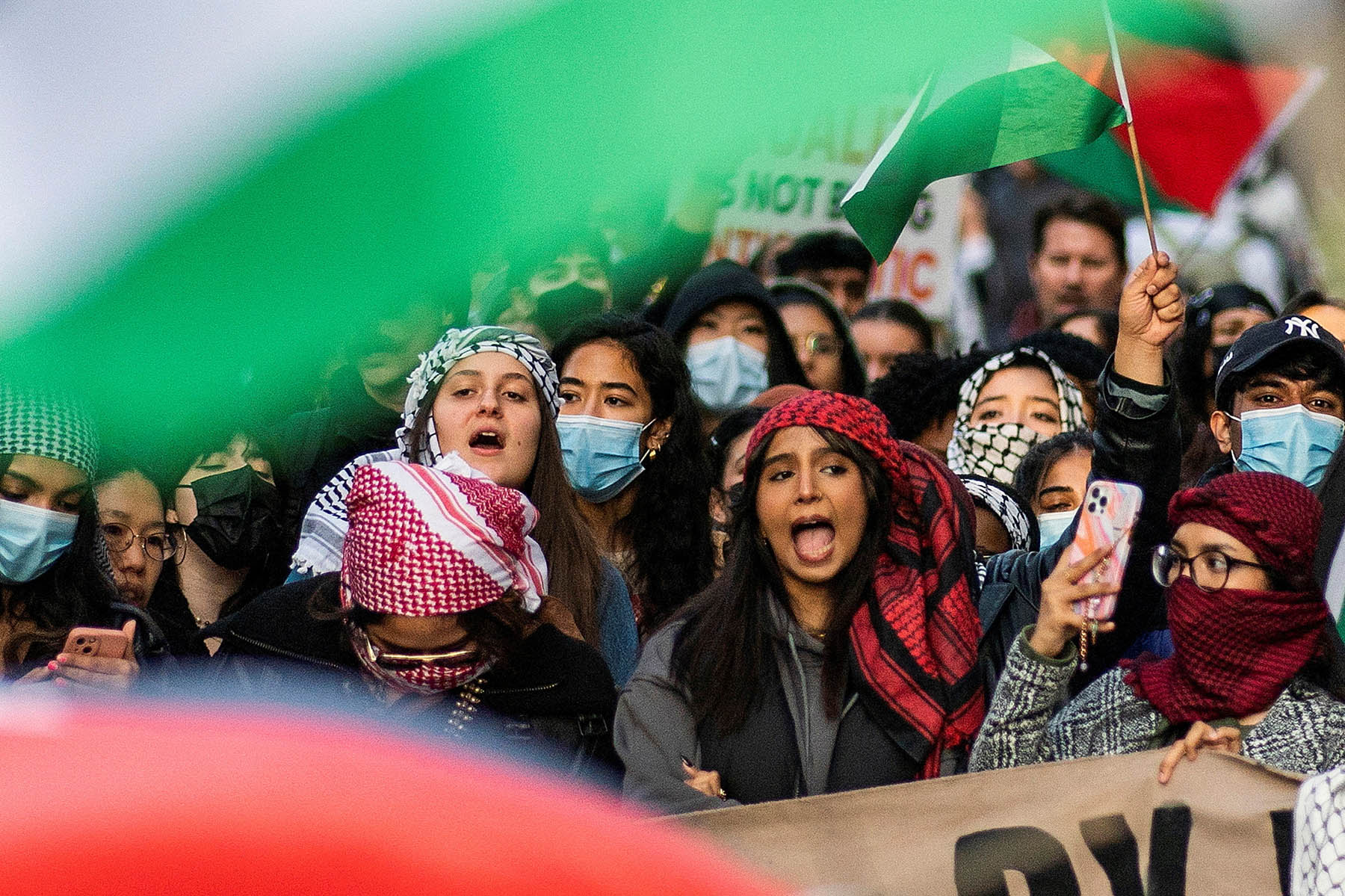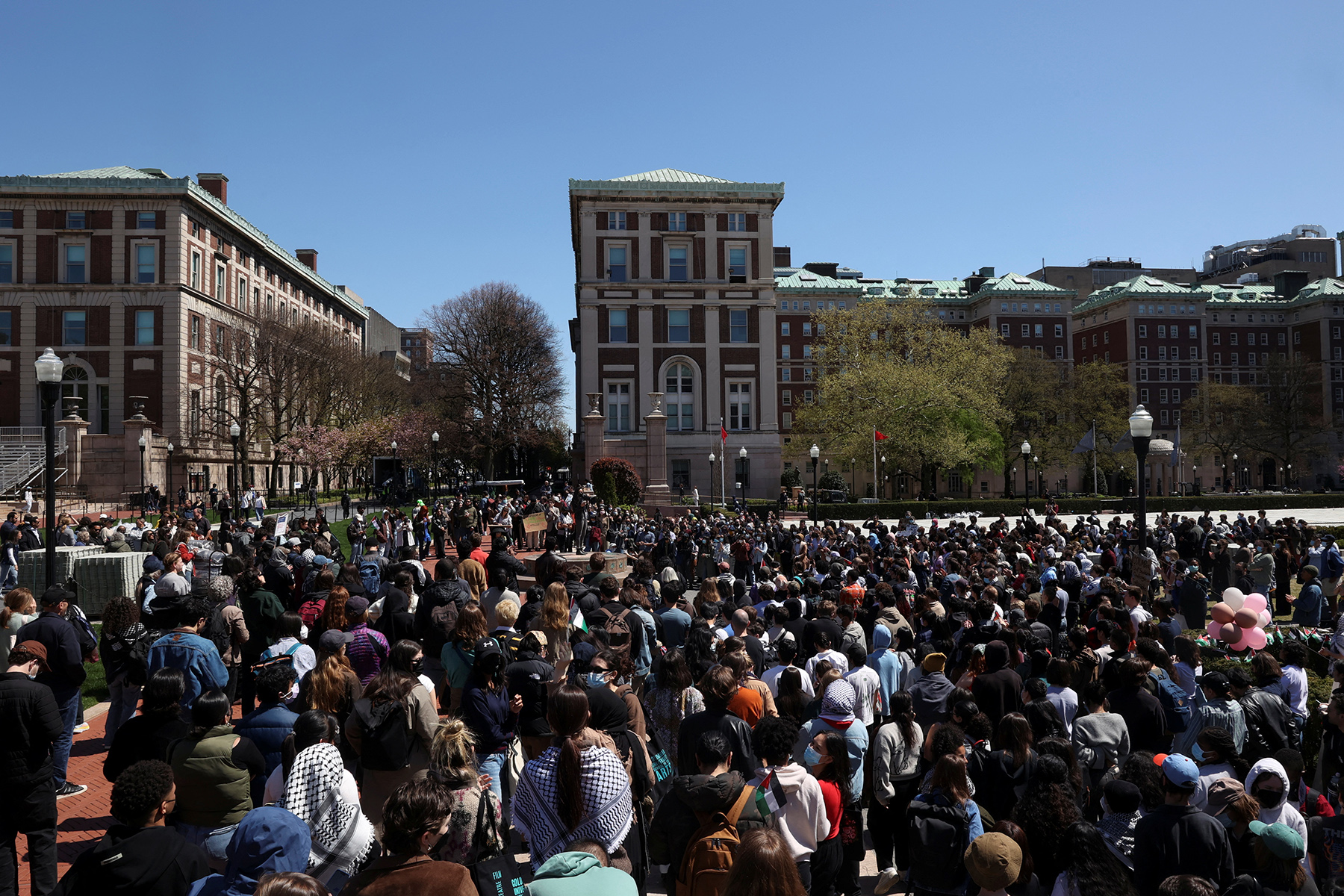The Trump administration unconstitutionally revoked the visas of noncitizens who engaged in pro-Palestinian protests and expressed criticism of Israel, a federal judge ruled Sept. 30 in a 161-page decision chastising President Donald Trump and his policies for infringing on free speech rights.
The decision — authored by U.S. District Judge William Young of the U.S. District Court for the District of Massachusetts — followed a challenge by several university associations represented by the Knight First Amendment Institute at Columbia University. The associations argued that the president’s executive orders unconstitutionally utilized immigration law to target student protesters, and violated the Administrative Procedure Act, which governs how federal agencies create and enforce regulations. Judge Young agreed.
“This case — perhaps the most important ever to fall within the jurisdiction of this district court — squarely presents the issue whether non-citizens lawfully present here in United States actually have the same free speech rights as the rest of us. The Court answers this Constitutional question unequivocally ‘yes, they do,’” wrote Judge Young, a President Ronald Reagan appointee.
The executive orders at issue were signed shortly after President Trump’s inauguration in January, in which he vowed to combat antisemitism on U.S. college and university campuses, describing pro-Palestinian activists and protesters as “pro-Hamas,” and threatening to revoke their visas.
The first target of these threats was Mahmoud Khalil, a pro-Palestinian activist and former student of Columbia University. The previously seldom-used provision of the Immigration and Nationality Act invoked against Khalil gives U.S. Secretary of State Marco Rubio the authority to “personally determine” whether a noncitizens’ admission to the U.S. “would compromise a compelling United States foreign policy interest.”
Judge Young ruled that there was “clear and convincing evidence” that U.S. Secretary of Homeland Security Kristi Noem, Rubio and their subordinates violated the First Amendment by implementing the executive orders “in concert to misuse the sweeping powers of their respective offices to target non-citizen pro-Palestinians for deportation primarily on account of their First Amendment protected political speech.”
“They did so in order to strike fear into similarly situated non-citizen pro-Palestinian individuals, pro-actively (and effectively) curbing lawful pro-Palestinian speech and intentionally denying such individuals (including the plaintiffs here) the freedom of speech that is their right,” Judge Young wrote.
The threat of “ideological deportations,” as described by the plaintiffs, chilled the speech of student demonstrators.
Following the beginning of the Israel-Hamas war on Oct. 7, 2023, colleges and universities across the country were embroiled in conflict and thousands were arrested. Presidents of various universities were brought in front of the U.S. House Committee on Education and the Workforce, where they were questioned about how they handle antisemitism on their respective campuses. Multiple presidents have since resigned. The federal government has also canceled or frozen millions of dollars in federal grants for various institutions, including Brown University, Columbia University, Cornell University and Princeton University. Recently, the Trump administration offered several colleges “favorable” access to federal funding if they agreed to adopt a series of commitments in line with the administration’s priorities regarding women’s sports, free speech and college affordability, among other things.
The attacks on higher education have increased discussions around protections for academic freedom, a student’s right to protest and threats to free speech protections.
Judge Young wrote: “I fear President Trump believes the American people are so divided that today they will not stand up, fight for, and defend our most precious constitutional values so long as they are lulled into thinking their own personal interests are not affected. Is he correct?”
A State Department spokesperson defending the Trump administration told The New York Times: “We will continue to revoke the visas of those who put the safety of our citizens at risk.”
First Amendment Watch spoke with Ramya Krishnan, senior staff attorney at the Knight First Amendment Institute, about the decision. Krishnan discussed the First Amendment questions at issue in the case, applauded Judge Young’s rebuke of the Trump administration’s actions, and explained how those actions led to an immense chilling effect on scholarly works and students’ active participation in college campus demonstrations.
Editor’s note: This interview has been edited and condensed for length and clarity.
FAW: What are the First Amendment issues in the case? Can you outline the reasoning Judge Young used in determining that the Trump administration’s actions violated the Constitution?
Krishnan: This case is our challenge to the Trump administration’s policy of targeting noncitizen students and faculty for deportation based on their pro-Palestinian advocacy. We argued in the case that this policy violated the First Amendment because noncitizens present in this country have the same First Amendment rights that citizens do, and this policy was a clear and unjustified infringement on noncitizens’ core political speech rights. In fact, it was an infringement of U.S. citizens’ First Amendment rights, because those rights, of course, include their right to hear from and engage with noncitizens who are inside of this country. Judge Young’s decision is a historic ruling. He held that the Secretary of State and of Homeland Security intentionally and in concert engaged in a campaign of intimidation. A campaign that involved arresting, detaining and deporting individuals, like Mahmoud Khalil and Rumeysa Ozturk, in order to chill pro-Palestinian speech and speech critical of Israel. He held that this policy was intentionally viewpoint discriminatory, and that it violated the First Amendment. And on his way to that conclusion, he emphatically rejected the Trump administration’s argument that noncitizens inside the U.S. don’t have the full protection of the First Amendment. He held that the First Amendment protects noncitizens just as it protects citizens.
FAW: What were your thoughts on how Judge Young chose to write his decision? He included an anonymous threat he received at the top of his opinion — “Trump has pardons and tanks. What do you have?” Why?
Krishnan: I think, in many ways, Judge Young was stating the obvious that the Trump administration’s arrests and threatened deportation of foreign students and faculty is part of a broader assault on First Amendment freedoms, an assault that really has no parallel in American history. To find a parallel you really have to go back to the McCarthy era, even to post-Red Scare, but as scholars of those periods in history have noted, the attacks we’ve seen on free speech and higher education go further than those we saw from the government during those periods. So Judge Young’s comments are a reasonable response to what all of us can see happening around us every day, which is the really shocking attack on freedoms that are necessary to a democracy. And obviously one of the key messages in his opinion, I think, is that the fight to defend our free speech rights and other freedoms is one that we need to take on in every generation, and that standing up for those freedoms takes courage, and perhaps that’s why he included the anonymous letter and a response to that letter. I don’t know.
FAW: Can you explain what an “ideological deportation” is? How does it differ from the reasons that a visa holder can be deported consistent with statutory requirements?
Krishnan: An “ideological deportation” boils down to a deportation undertaken based on a person’s core political speech, and that is precisely what Judge Young found has happened. In several cases — including those of Mr. Khalil, Ms. Ozturk, Mr. Mahdawi, Dr. Khan Suri, and Yunseo Chung — the public officials that we sued, at every stage of the policy’s implementation, have interpreted the concepts of antisemitism and support for terrorism [to sweep] up core political speech. Namely speech that expresses support for Palestinians, and speech that is critical of Israel. And he also found that these officials have consistently equated pro-Palestinian advocacy and criticism of Israel, with support for and sympathy for Hamas. And he rightly found that treating these political viewpoints as a basis for revoking a noncitizens visa and deporting them to be unconstitutional. There are, of course, exceptions to the First Amendment protection of speech, but they are narrow ones. And he found, significantly, that the speech that was being relied on here did not, for example, rise to the level of incitement within the meaning of the Brandenburg case or proof of a true threat. Instead, what the government was relying on here was lawful, political protest and association.
